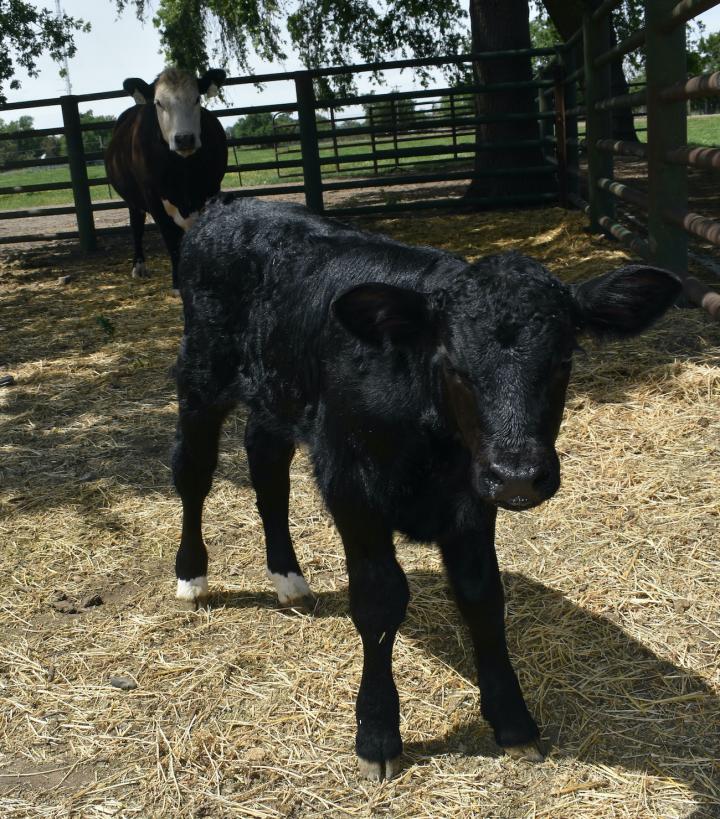This first demonstration of a targeted gene knock-in for large sequences of DNA via embryo-mediated genome editing in cattle will mean it produces male offspring 75 percent of the time.
That's not to increase sexism, it's a benefit because male cattle are about 15 percent more efficient at converting feed into weight gain than females. That keeps costs low, especially on the checklist now when we have seen how precarious food supply can be for the poor, and it's better for the environment.
The genetically engineered Bull, named Cosmo, will create offspring that inherit his SRY gene and will grow and look like males, even if they inherit a Y chromosome.

Meet Cosmo. Photo: Alison Van Eenennaam / UC Davis
The SRY gene was inserted into bovine chromosome 17, which is a genomic safe harbor site. That ensures the genetic elements function predictably and don't disrupt the expression or regulation of adjacent genes. Chromosome 17 was chosen after unsuccessful attempts to knock-in the gene on the X chromosome, which would have resulted in a bull that produced only male offspring. Cosmo is expected to produce 75 percent male offspring -- the normal 50 percent XY animals, and another 25 percent XX animals that inherit the SRY gene.
After two and a half years to develop the method to insert a gene into the developing embryo and another two years to successfully establish a pregnancy, in April of 2020 they got a healthy 110-pound male calf.
Professor Alison Van Eenennaam, animal geneticist with the UC Davis Department of Animal Science. said this is just the beginning of the research. Cosmo will reach sexual maturity in a year, and he will be bred to study if inheriting the SRY gene on chromosome 17 is sufficient to trigger the male developmental pathway in XX embryos, and result in offspring that will grow and look like males.
Since the Food and Drug Administration regulates gene-editing of animals using 1980s rules, as if they were drugs, Cosmo and his offspring will not enter the food supply.






Comments